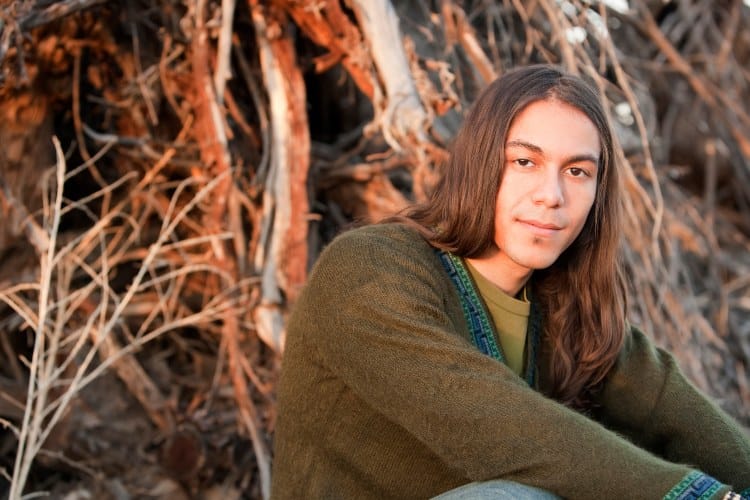The Native American community encompasses groups of people who lived in the U.S. before colonization by European settlers. Today, 4.2 million Americans (roughly 1.3% of the U.S. population) identify as having Native American Heritage. These communities continue to deal with traumas rooted in generational and historical pain and misfortune.
From struggling to maintain culture and identity to managing forced relocations, Native American communities are familiar with different ways their shared experiences of alienation and colonization impact mental health.
This post provides an overview of mental health concerns within native communities and how to seek effective treatment at D’Amore Healthcare. We provide comprehensive treatment for mental health disorders, personality disorders, anxiety disorders, and thought disorders.
Trust our compassionate and caring team to properly diagnose, identify, and address all mental health concerns in the Native American community.
Factors Affecting Indigenous and Native American Mental Health
A huge amount of diversity exists among the Indigenous communities in the U.S. However, many people within these communities embrace a shared group identity.
Some common factors affecting the Indigenous and Native American mental health communities include:
- Historical traumas
- Broken treaties
- Social, economic, and political injustices
- Forced relocations and cultural assimilation
Many shared cultural experiences of Native tribes serve as protective factors in the fight against mental health. But that may not be the most effective or long-lasting solution. Our mental health treatments at D’Amore Healthcare are built on evidence-based, holistic treatment. We use the most advanced medical technology for the best and quickest patient recovery.
Traditional Native life revolves around a deep connection to the land and its resources. That’s why villages were spread out in different parts to prevent the overuse of resources. Sustainability was also a priority which paved the way for fishing, hunting for animals, and harvesting plants.
This close attachment to land and nature is one of the main reasons why colonization was devastating. Colonizers displaced Indigenous communities by blocking waterways, cutting down trees, and imposing borders. The adverse effects of this historical trauma are still felt today.
Many Native people currently suffer from multi-generational trauma. This is due to the long history of trauma they’ve had to endure, lack of opportunity, and continued discrimination.
Continual exposure to this trauma further resulted in substance use disorders and other mental illnesses, including:
- Depression
- Bipolar
- Complicated Grief
- General Anxiety Disorder
- Obsessive Compulsive Disorder
- Postpartum Depression
- Social Anxiety
- Suicidal Ideation
In a 2019 national estimate by the Health and Human Services Office of Minority Health, suicide was the second main cause of death for Native Americans between ages 10 and 34. This is 20% higher compared to overall death by suicide among the non-Hispanic white population.
Barriers to Receiving Mental Health Treatment
Despite the need for mental health care and emotional well-being, very few members of Native American communities can access healthcare. Even fewer natives understand their mental state and need for proper diagnosis and treatment.
This segment provides an in-depth overview of the main barriers to adequate mental health treatment for Native Americans.
Rural and Isolated Locations
Although not all Native Americans live in rural, isolated locations, many still do. Consequently, they lack access to appropriate mental health care services and programs to meet their needs. What complicates the situation is that most Native Americans live outside the tribal areas. Therefore, further limiting their access to clinics and mental health services.
Lack of Cultural Competence
Many members of mental health Indigenous communities don’t fully understand their mental and emotional well-being or have enough insight to seek proper diagnosis and treatment for certain conditions than their Western counterparts. As a result, most natives rarely see value in the treatments offered.
Inadequate Funding
The long-standing history between the federal government and the Native American community dates to when the federal government pledged to provide health, welfare, and safety to tribal nations. in exchange, the tribal community would give millions of acres of land to the federal government for other projects.
However, the Indian Health Service (IHS) has been mired with significant challenges in providing the agreed-upon services. As such, Native Americans have incredibly limited resources, consequently impacting their overall quality, availability, and accessibility to mental health services.
Poverty and Unemployment
High poverty and unemployment rates among Native Americans create additional barriers to proper health care. Estimates in the United States suggest that Native Americans are more likely to have earnings below the poverty line.
Most natives also live without reliable access to transportation, adequate sanitation, food, clean water, and electricity. This disparity further aggravates an already dire situation that was increased by the Coronavirus pandemic.
Language Barrier
Differences in language are always a crucial consideration for mental health treatment. For instance, words like anxiety and depression are not known in some Native languages. These simple but crucial factors are significant triggers that discourage natives from visiting mental health institutions.
How to Seek Effective Treatment
There’s a remarkable lack of willingness by Native American communities to access mental care services. Many natives feel ignored, disrespected, and stereotyped by non-Indigenous health providers. Therefore, working with specialists who demonstrate cultural competence and compassion for quick and effective treatment is crucial.
We encourage mental health Indigenous communities to seek immediate healthcare services from certified, qualified, and experienced healthcare providers. All Native American communities should feel heard and respected when visiting mental health care institutions like other patients.
Get Help at D’Amore Mental Health
D’Amore Healthcare provides individualized, patient-focused treatment modalities and therapies for each patient based on their mental condition. Our treatment facility uses multi-faceted recovery programs to diagnose, identify, and address mental health challenges to sustainable recovery.
We encourage Native American communities to visit mental health care facilities to receive specialized treatment. Specialized programs can address specific recovery challenges and risks Native Americans may face. We provide many resources for native communities living with trauma to help them access the mental health care they need.
Call us today at 714-375-1110. We offer mental health treatment options to Native American communities reaching out for a helping hand. You are not alone. We are here to help.





































